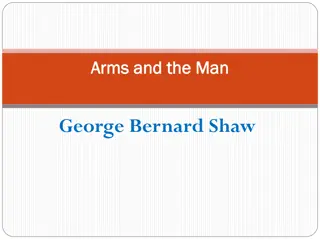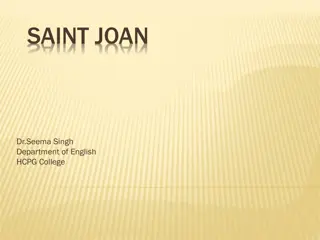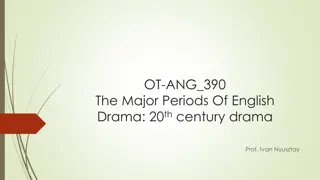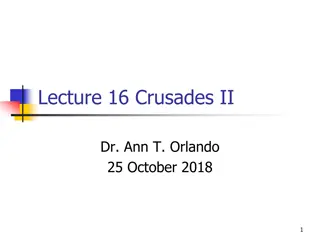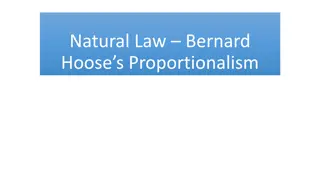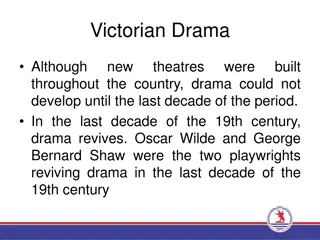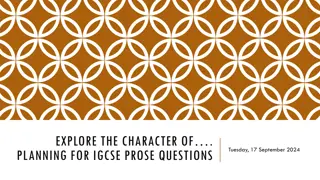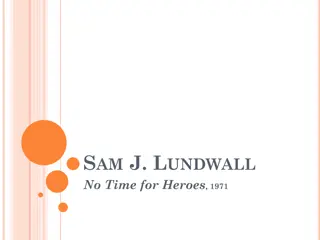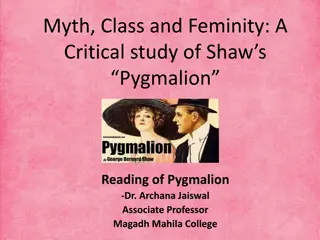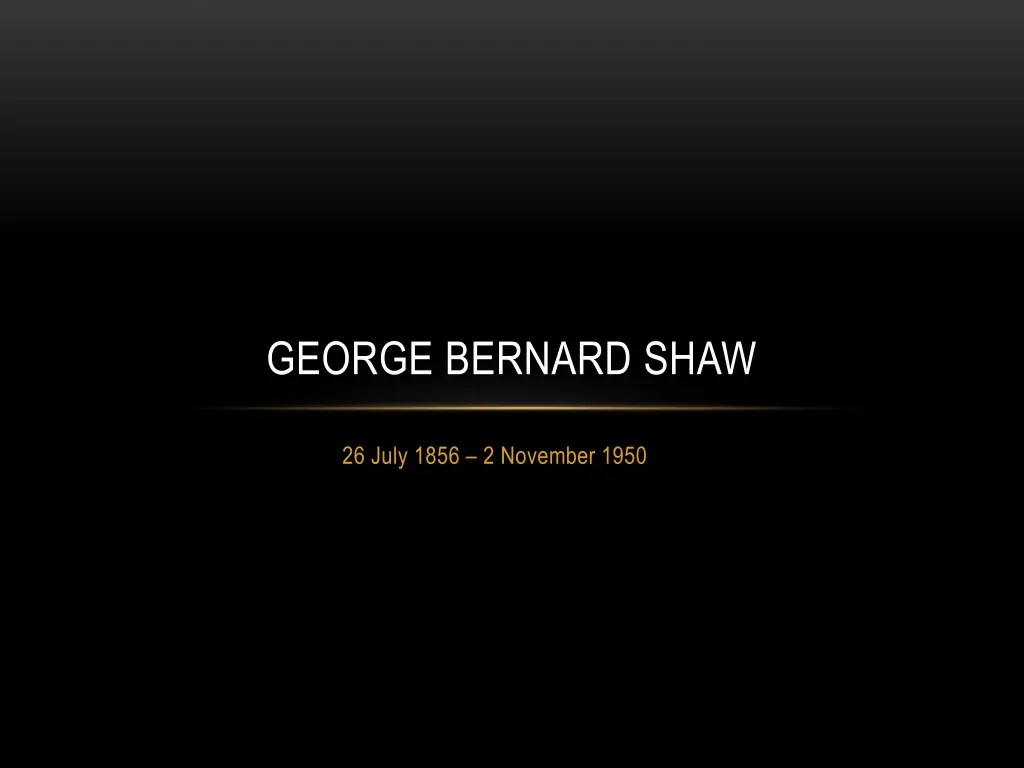
George Bernard Shaw: Playwright and Fabian Society Co-Founder
George Bernard Shaw, born on July 26, 1856, was a renowned Irish playwright, essayist, and co-founder of the London School of Economics. Known for his wit and social commentary, Shaw's works included over 60 plays and numerous essays. Despite his aversion to formal education, he became a prominent figure in the socialist movement and married Charlotte Payne-Townshend. Discover more about Shaw's early years, personal life, and contributions to literature and society.
Download Presentation

Please find below an Image/Link to download the presentation.
The content on the website is provided AS IS for your information and personal use only. It may not be sold, licensed, or shared on other websites without obtaining consent from the author. If you encounter any issues during the download, it is possible that the publisher has removed the file from their server.
You are allowed to download the files provided on this website for personal or commercial use, subject to the condition that they are used lawfully. All files are the property of their respective owners.
The content on the website is provided AS IS for your information and personal use only. It may not be sold, licensed, or shared on other websites without obtaining consent from the author.
E N D
Presentation Transcript
GEORGE BERNARD SHAW 26 July 1856 2 November 1950
George Bernard Shaw (26 July 1856 2 November 1950) was an Irish playwright and a co-founder of the London School of Economics. Although his first profitable writing was music and literary criticism, in which capacity he wrote many highly articulate pieces of journalism, his main talent was for drama, and he wrote more than 60 plays. He was also an essayist, novelist and short story writer.
EARLY YEARS AND FAMILY George Bernard Shaw was born in Synge Street, Dublin, on 26 July 1856to George Carr Shaw (1814 85), an unsuccessful grain merchant and sometime civil servant, and Lucinda Elizabeth Shaw, n e Gurly (1830 1913), a professional singer. He had two sisters, Lucinda Frances (1853 1920), a singer of musical comedy and light opera, and ElinorAgnes (1855 76). Shaw's birthplace, Dublin
PERSONAL LIFE Influenced by his reading, he became a dedicated Socialist and a charter member of the Fabian Society, a middle class organization established in 1884 to promote the gradual spread of socialism by peaceful means. In the course of his political activities he met Charlotte Payne-Townshend, an Irish heiress and fellow Fabian; they married in 1898. The marriage was never consummated, at Charlotte's insistence, though he had a number of affairs with married women. In 1906 the Shaws moved into a house, now called Shaw's Corner, in Ayot St. Lawrence, a small village in Hertfordshire, England; it was to be their home for the remainder of their lives, although they also maintained a residence at 29 Fitzroy Square in London.
EDUCATION Shaw briefly attended the Wesley College, Dublin, a grammar school operated by the Methodist Church in Ireland, before moving to a private school near Dalkey and then transferring to Dublin's Central Model School. He ended his formal education at the Dublin English Scientific and Commercial Day School. He harboured a lifelong animosity toward schools and teachers, saying, "Schools and schoolmasters, as we have them today, are not popular as places of education and teachers, but rather prisons and turnkeys in which children are kept to prevent them disturbing and chaperoning their parents." In the astringent prologue to Cashel Byron's Profession young Byron's educational experience is a fictionalized description of Shaw's own schooldays. Later, he painstakingly detailed the reasons for his aversion to formal education in his Treatise on Parents and Children.[5] In brief, he considered the standardized curricula useless, deadening to the spirit and stifling to the intellect. He particularly deplored the use of corporal punishment, which was prevalent in his time.
CONTRIBUTIONS Shaw's plays were first performed in the 1890s. By the end of the decade he was an established playwright. He wrote sixty-three plays and his output as novelist, critic, pamphleteer, essayist and private correspondent was prodigious. He is known to have written more than 250,000 letters.[13] Along with Fabian Society members Sidney and Beatrice Webb and Graham Wallas, Shaw founded the London School of Economics and Political Science in 1895 with funding provided by private philanthropy, including a bequest of 20,000 from Henry Hunt Hutchinson to the Fabian Society. One of the libraries at the LSE is named in Shaw's honour; it contains collections of his papers and photographs. Shaw helped to found the left-wing magazine New Statesman in 1913 with the Webbs and other prominent members of the Fabian Society.
FINAL YEARS During his later years, Shaw enjoyed attending to the grounds at Shaw's Corner. At 91 he joined the Interplanetary Society for the last three years of his life. He died at the age of 94, of renal failure precipitated by injuries incurred by falling while pruning a tree. His ashes, mixed with those of his wife, Charlotte Payne- Townshend, were scattered along footpaths and around the statue of Saint Joan in their garden.

![❤[PDF]⚡ Civil War Talks: Further Reminiscences of George S. Bernard and His Fel](/thumb/20551/pdf-civil-war-talks-further-reminiscences-of-george-s-bernard-and-his-fel.jpg)
![❤Book⚡[PDF]✔ Doing the Impossible: George E. Mueller and the Management of NASA’](/thumb/21684/book-pdf-doing-the-impossible-george-e-mueller-and-the-management-of-nasa.jpg)


